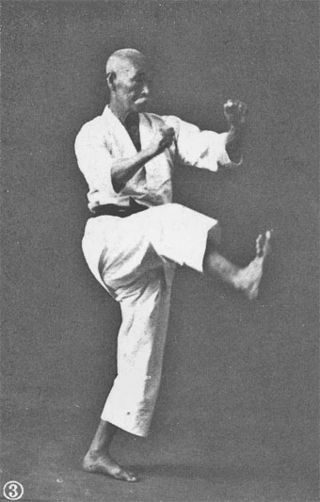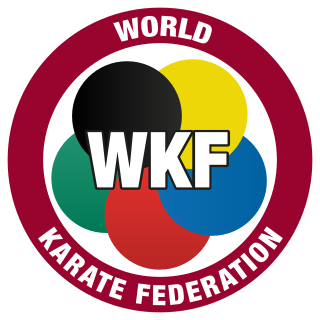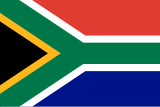
Karate (空手), also karate-do, is a martial art developed in the Ryukyu Kingdom. It developed from the indigenous Ryukyuan martial arts under the influence of Chinese martial arts. While modern karate is primarily a striking art that uses punches and kicks, traditional karate also employs throwing and joint locking techniques. A karate practitioner is called a karate-ka (空手家).

Kickboxing is a full-contact hybrid martial art and boxing type based on punching and kicking. Kickboxing originated in the 1950s to 1970s. The fight takes place in a boxing ring, normally with boxing gloves, mouth guards, shorts, and bare feet to favor the use of kicks. Kickboxing is practiced for self-defense, general fitness, or for competition. Some styles of kickboxing include: full contact karate, Muay Thai, Japanese kickboxing, Lethwei, Sanda, and Savate.

Taekwondo is a Korean martial art and combat sport involving punching and kicking techniques. The word Taekwondo can be translated as tae, kwon, and do. In addition to its five tenets of courtesy, integrity, perseverance, self-control and indomitable spirit, the sport requires three physical skills: poomsae (품새), kyorugi (겨루기) and gyeokpa (격파).
Kyokushin (極真) is a style of karate originating in Japan. It is a full-contact style of stand-up fighting and is rooted in a philosophy of self-improvement, discipline, and hard training.

Full contact karate is any format of karate where competitors spar full-contact and allow a knockout as winning criterion.

The International Fitness and BodyBuilding Federation (IFBB), headquartered in Las Rozas (Madrid), is an international professional sports governing body for bodybuilding and fitness that oversees many of the sport's major international events, notably the World and Continental Championships.

The Philippine Olympic Committee Inc. (POC) is the National Olympic Committee of the Philippines.

The World Karate Federation (WKF) is an international governing body of sport karate with 198 member countries. It is the only karate organization recognised by the International Olympic Committee and has more than a hundred million members. The WKF organizes their Junior and Senior Karate World Championships, which are each held every other year. The President of the WKF is Antonio Espinós, and the headquarters are located in Madrid, Spain.

Rugby Africa is the administrative body for rugby union within the continent of Africa under the authority of World Rugby, which is the world governing body of rugby union. As of 2018, Rugby Africa has 37 member nations and runs several rugby tournaments for national teams, including the Africa Cup which is the main 15-a-side competition for African national teams.

Mawashi geri (回し蹴り) can be translated as "spin kick", although it is also sometimes referred to as a roundhouse kick. It is a kick used in Japanese martial arts.

The World Pool-Billiard Association (WPA) is the international governing body for pool. It was formed in 1987, and was initially headed by a provisional board of directors consisting of representatives from Australia, Americas, Africa, and Europe. As of 2023, the WPA president is Ishaun Singh of South Africa. It is an associate of the World Confederation of Billiards Sports (WCBS), the international umbrella organization that encompasses the major cue sports. WPA is headquartered in Gauteng, South Africa.

The Japan Karate Federation (JKF), a.k.a. Japan Karatedo Federation, is a national governing body of the sport karate in Japan. The JKF is officially affiliated with the Japan Olympic Association (JOC), World Karate Federation (WKF), Japan Sports Association (JSA), and Japanese Budō Association (JBA). The styles recognized by the JKF are Wadō-ryū, Shotokan, Shito-ryu, and Goju-ryu. Its headquarter is located in Tokyo, Japan.

Yoseikan Karate (養正館空手) or Yoseikan Ryu Karate (養正館流空手) is the name given to the variant of Shotokan Karate taught at the Yoseikan Dojo in Shizuoka, Japan, under the direction of Minoru Mochizuki.

The European Karate Federation (EKF) is the governing body of competitive karate in more than 50 countries across Europe. The EKF's stated goal is to promote, organize, regulate, and popularize the sport of karate. It is one of the five continental federations recognized by the World Karate Federation.
Sports in Vanuatu are played throughout the country.
Ghana's most popular sport is football, followed by boxing, Athletics, Badminton and basketball.

Mind Sports South Africa (MSSA) is recognised by Act of Parliament as the national controlling body for mind sports in South Africa.
Sport in Bangladesh is a popular form of entertainment as well as an essential part of Bangladeshi culture. Cricket is the most popular sport in Bangladesh followed by football. Ha-du-du is the national sport of Bangladesh.
Australian Karate Federation is the governing body for the sport of Karate in Australia.

Karin Prinsloo is a South African karateka, gold medal winner of the 6th World Games (2001) in the under 60 kg Kumite category and Karate instructor formerly based in Durban, South Africa, now living in Perth, Australia. She is listed among the top Karate competitors of all time.

















